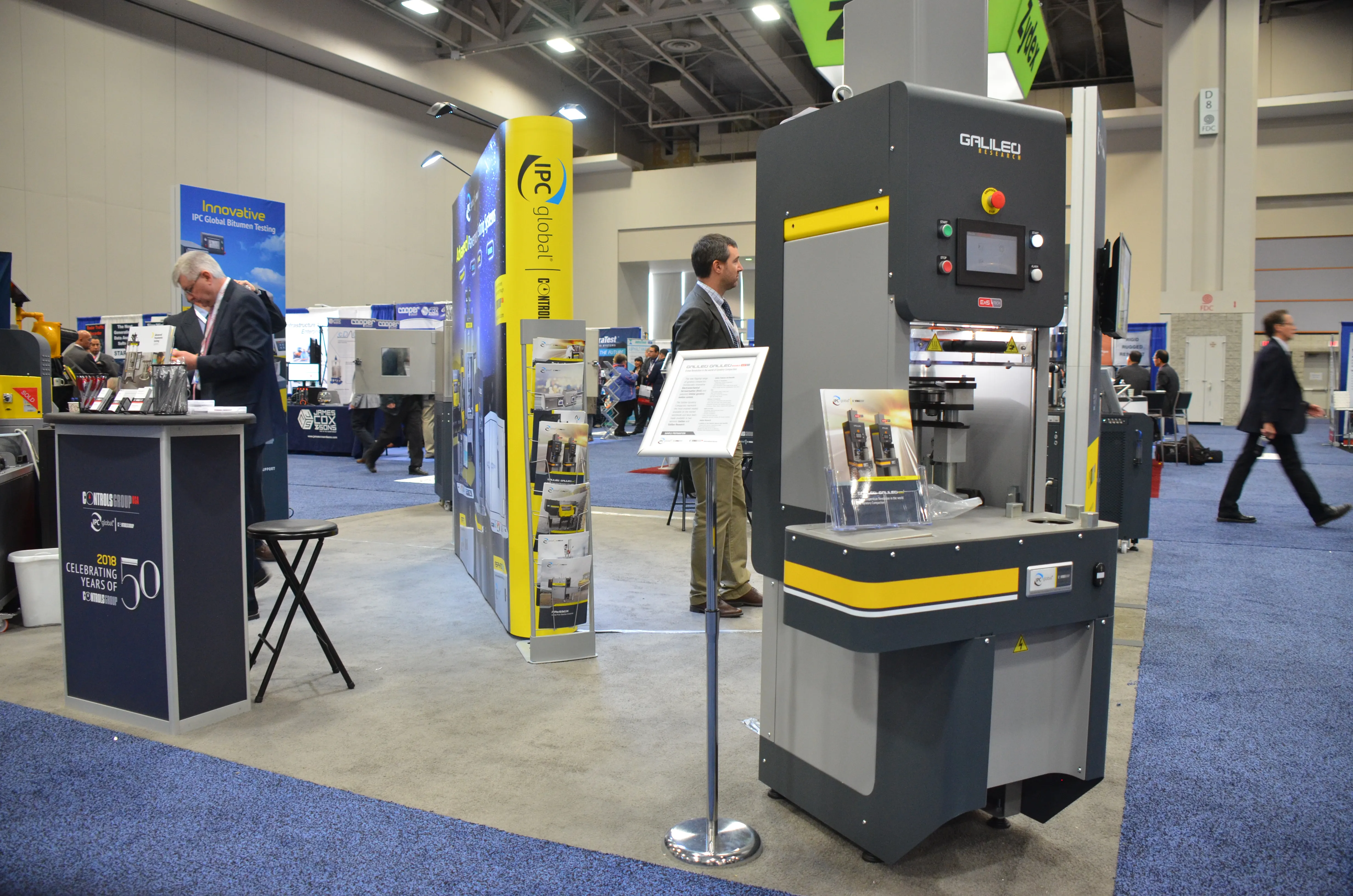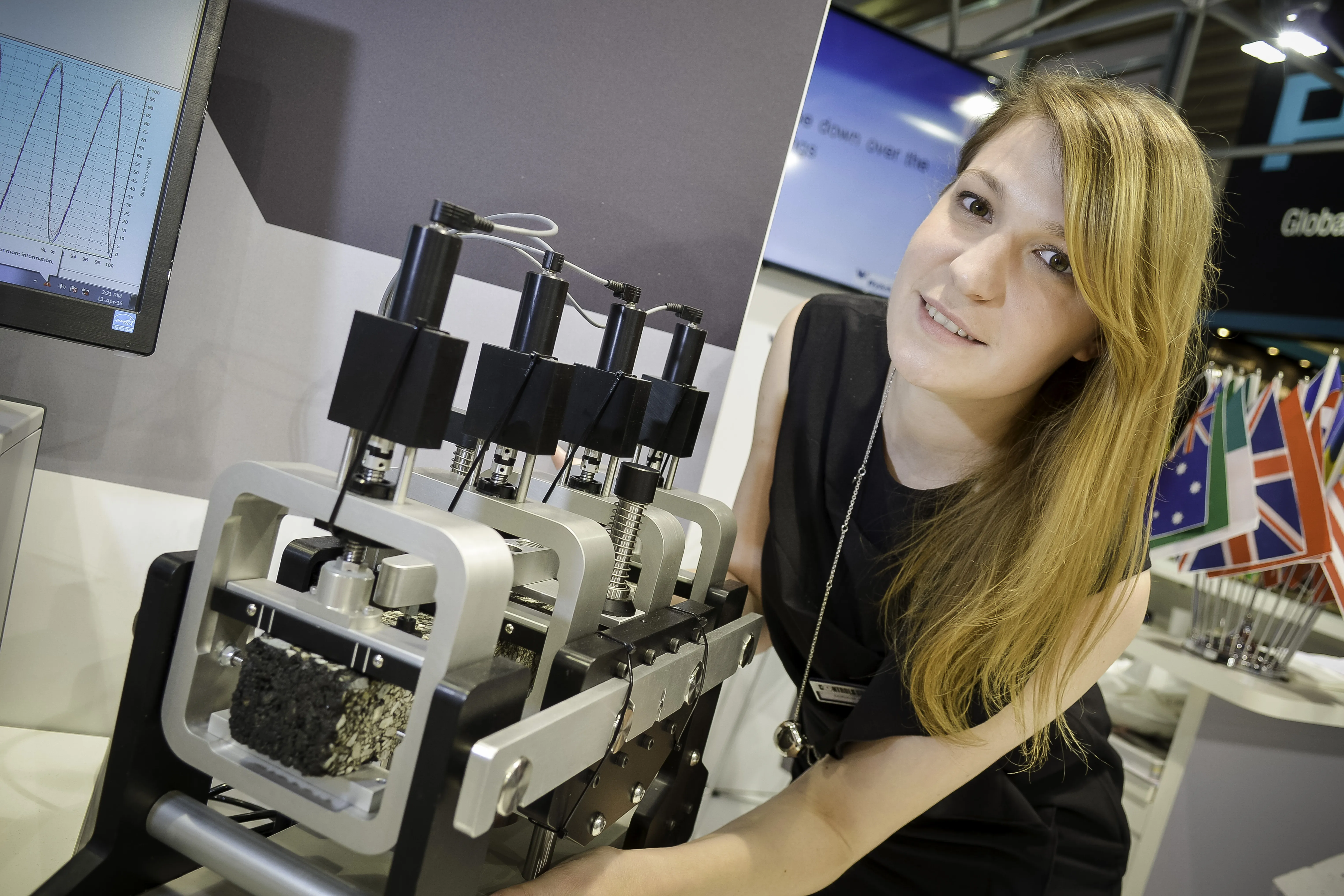
“We’ve had a big increase in visitors from Asian countries in the last two years, particularly from China,” said TRB's director of communications Lisa Berardi Marflak.
“The US is probably the biggest individual market for us in the world, so we want to be active in it,” said John Lamond, general manager for Controls Group USA.
Controls Group has been in the US for the last three years, having purchased Australian high-tech manufacturer of asphalt testing systems,
The combination of IPC Global’s technology and Controls Group’s manufacturing know-how is helping to create more affordable versions of testing equipment that are relevant beyond university research programmes, according to Lamond.
“We are looking at ways to retain the quality and specification of the system but offer them to a wider audience. It’s all to do with the envelope of testing. We can reduce the envelope of temperature or loading to produce a more standardised system to carry out dynamic testing.”
The new range of Galileo gyratory compactors has also been developed since Controls Group’s acquisition of IPC Global. The machine has a special patented technology which adjusts the angle at which the specimen is gyrated so that it remains accurate, which has historically been a problem for gyratory compactors.
Lamond hopes that the Pavelab 50 PaveAnalyzer, a second-generation bitumen extractor launched in 2016 in Europe will soon be in demand in the US, as a new ASTM standard on the automated extraction of bitumen is expected later this year.
“The test has been used for a number of years in Europe but it’s new to the US market,” says Lamond. “Here, we tend to use ignition ovens. But these have to be recalibrated every time a mix changes.”
The benefit of systems such as Pavelab 50 is that the harmful solvent is all retained within a closed system within the machine so that technicians do not come into contact with it. The whole process – washing, centrifuging, recycling of the solvent – is automatic and takes around 45 minutes.
For Lamond, one of the most interesting discussions at TRB, and ongoing among the US industry, is the move towards balanced mix design and a few standardised tests that can be used in every state. But getting to that point could be a long process, he warns: “It will take a while to boil down to a few tests that everyone is comfortable with,” he said.









